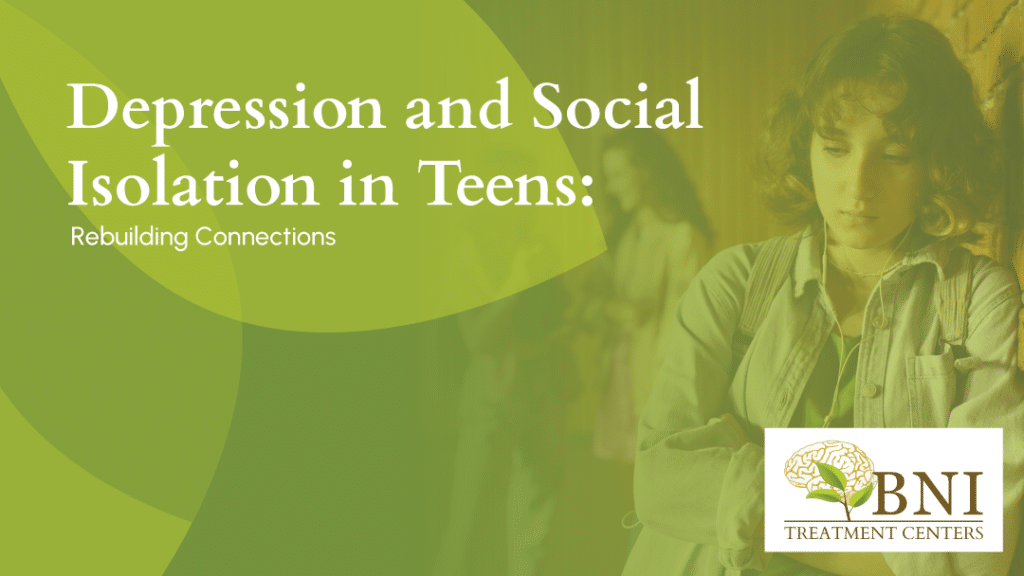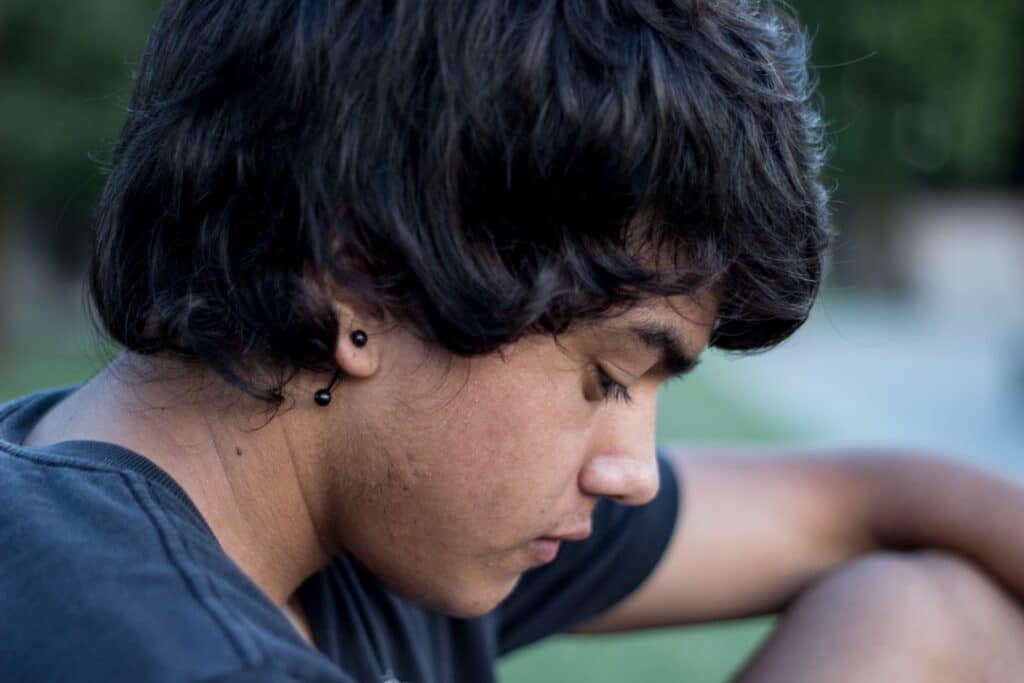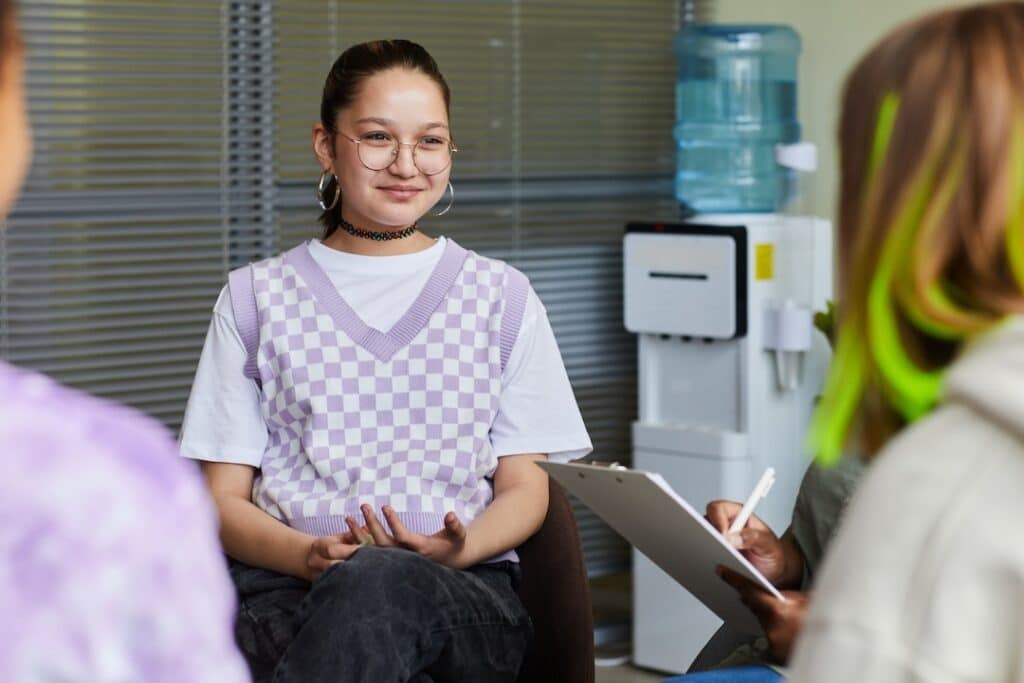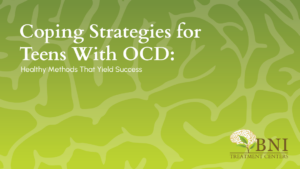
The percentage of children in California with depression and/or anxiety increased by 70% between 2016 and 2020.
What caused this? Researchers aren’t entirely certain, but a contributing factor is isolation. Between the continuing rise of social media and the COVID-19 pandemic, teens have spent more time without in-person connection in recent years than ever.
We work with teens closely at BNI Treatment Centers and have witnessed firsthand how social interactions and friendships can benefit teens. Let’s explore the relationship between depression and social isolation, and what we can do to disrupt the cycle in adolescents.
The Effects of Social Isolation and Loneliness: How It Worsens Depression
Humans are social creatures. Multiple studies point to the health benefits of spending time with others. Both real and perceived social isolation is linked to depression.
Individuals with smaller social circles and who spend more time alone don’t receive the support they need to thrive. This is especially harmful for individuals with depression, who are prone to rumination and dwelling on negative thoughts. When people with depression don’t have others in their lives to disrupt these processes, they will continue and typically cause the person’s state to worsen.
When someone is frequently alone, they also lose sight of their value to others. This can be harmful, and even dangerous, to depressed individuals who experience suicidal ideation. When they only have themselves for company, and they feel unhappy, it’s easier to convince themselves that no one else cares about them. A meta-analysis of 17 studies identified loneliness as a key risk factor for suicidal ideation and behavior.

How Depression Worsens Social Isolation
Depressive symptoms often include a lack of motivation and low energy. This makes going out and spending time with others difficult. Individuals with depression may also experience feelings of guilt and shame, leading them to believe others don’t like them or will feel burdened by them. They may be embarrassed to have others visit them because they’ve neglected their self-care or cleaning due to depressive symptoms.
Depression comes with a feeling of being misunderstood, which increases loneliness. Many don’t open up about their symptoms to people they trust out of fear of judgment, leading to further distance in relationships.
Studies show people with depression are more likely to spend time with individuals who share their depression symptoms. While this may come from a desire to bond with like-minded individuals who understand their experiences, people with depression can also reinforce each other’s negative attitudes and thought processes. This can alienate people with depression from individuals with more positive mental health who may be a healthier support system.
Symptoms of depression are also associated with fewer group interactions. Many aspects of life involve communication in group settings. This suggests individuals with depression may avoid these situations, further reinforcing isolation and causing them to miss out on healthy life experiences.
How Depression and Social Isolation Impact Adolescents
Adolescence is a stage of significant development – physically, mentally, and socially. Peer interactions play an important role. Animal research indicates that isolation in adolescence could impact cognitive development, behavior, and brain structure in youth long-term. Another analysis indicated loneliness in adolescence could increase the risk of depression for up to nine years after the period of isolation.
While teens are forced into social activity during school to some degree, this isn’t enough. Teens also need socialization unrelated to education, and excessive homework can interfere with this.
Social media also plays a role. Many teens use it to supplement, and in some cases replace, in-person interactions. Countless studies show a correlation between social media usage and mental health conditions, including depression. Teens with depression are also more likely to spend time scrolling aimlessly on social media. This also interferes with the face-to-face social interaction teens need to grow up well.
How to Break the Cycle of Depression and Social Isolation in Teens
Parents can intervene in the cycle of depression and social isolation by persistently interacting with their teens. Inquire about their day even when they don’t want to talk. Inform them you’re there to listen when they are ready. Offer ideas of activities to participate in together, and encourage them to spend time with friends outside of school.
Teens with depression would also benefit from therapy or additional mental health treatment. Group therapy can be especially helpful for isolated adolescents. While they may prefer to withdraw, this therapy method requires them to share their thoughts and feelings. It often leads to friendships built on shared understanding and experiences. This can help with feelings of being misunderstood or judged.

Depression Treatment for Teens in Los Angeles
If your teen is living with depression, don’t try to manage it on your own. Enlist the help of a mental health professional. Depression treatment for teens is available and effective. With it, your teen can break the cycle of depression and social isolation and strive for a happier, healthier future.
BNI Treatment Centers is a mental health facility for adolescents ages 12-17. We focus on clinical excellence backed by scientific evidence. Our treatment teams are led by psychiatrists who are actively and personally involved in every teen’s care. This allows for quick intervention when treatment isn’t effective, and diagnosing any mental health condition that might occur alongside your teen’s depression. Call us at (888) 522-1504 to learn more.
BNI Treatment Centers: Science-based, evidence-backed, compassion-led.



